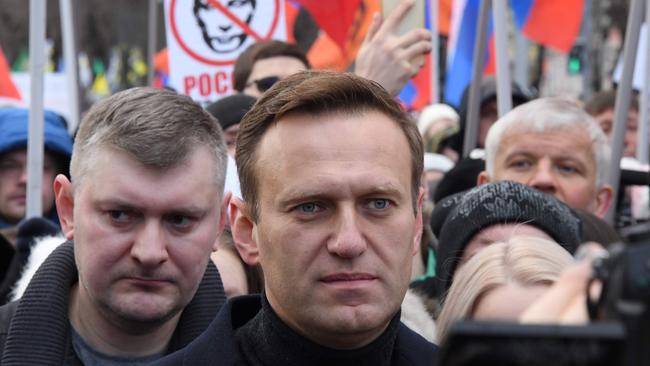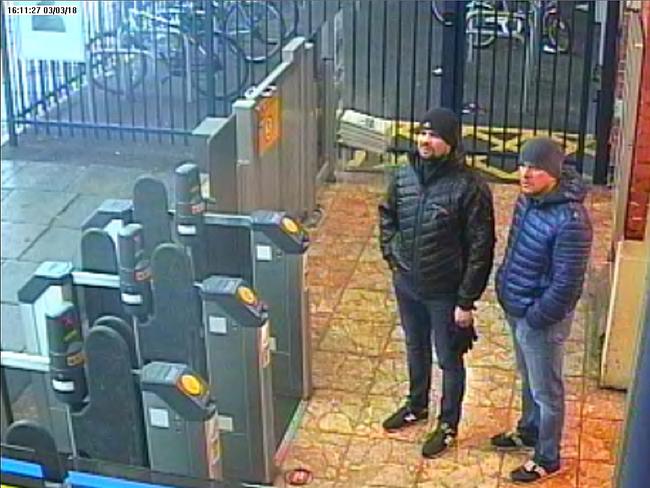Kremlin lie machine goes into overdrive over Navalny attack
The response to the attack on Alexei Navalny is classic ‘vranyo’, a shamelessly untrue statement.

Another critic of Vladimir Putin is struck down, and the official response from Moscow is familiar, routine, ritualised.
Claims that the anti-corruption campaigner Alexei Navalny was poisoned are “mere conjecture”, says the Kremlin, adding, with smirking insincerity: “Naturally, we wish him the speediest possible recovery, just like any other citizen of our country”.
Tass, the official news agency, meanwhile launches an alternative theory: that Navalny poisoned himself, possibly while drunk. An unnamed law enforcement source is quoted as saying police “did not exclude that he drank or took something himself”. A doctor said: “No poisons have been detected.” Navalny’s family insist that they are being lied to.
The untranslatable Russian word for this is vranyo, meaning a statement that is obviously untrue but which goes unchallenged because of the power wielded by the liar.
Vranyo is practically the defining principle of the Vladimir Putin regime.
The poisoning of the former double agent Sergei Skripal in Salisbury in 2018 produced a classic example of the technique, when the two military intelligence goons accused of the attack sat in front of television cameras and baldly declared that they had only come to admire the gothic architecture of the city’s cathedral.

“Our friends had been suggesting for a long time that we visit this wonderful town,” said one of the men.
That provoked mirth and mockery in the West but in Russia it was interpreted as another expression of Putin’s power: “I am lying to you. You know I am lying to you. I know you know, but I don’t care. And there’s nothing you can do about it.”
In his essay A Word or Two About Vranyo, Dostoevsky described this uniquely Russian concept as an unspoken collusion between the liar and his audience: the liar pretends to tell the truth and the audience pretends to believe him.
If the language of assassination in Russia is founded on creating deliberate uncertainty, so is the methodology: the perpetrators are seldom identified, the type of poison often remains unknown, the precise motive for murder is opaque, but the message is crystal clear.
Navalny may have been attacked by agents of the Russian state, or one of the people he has investigated for corruption, or a freelance killer keen to curry favour with the Kremlin. We will probably never know and that, too, is part of the strategy.
Whether a poisoning victim actually dies is, in some ways, irrelevant. Many recent targets have survived: Skripal and his daughter recovered from the novichok attack and will remain in hiding for the rest of their lives. Opposition politician Vladimir Kara-Murza has survived two suspected poisonings.
Frequently, the victim believes they have been attacked but cannot be sure. Oleg Gordievsky, Britain’s most important Cold War spy, claimed he was unsuccessfully poisoned in 2007. Pyotr Verzilov, a member of the Pussy Riot group of activists, thought he was poisoned in 2018 when he briefly lost his sight, hearing and movement. Navalny himself suffered a mysterious “acute allergic reaction” in prison last year.
Whether the assassins actually kill is less important than demonstrating the vulnerability of every regime critic or perceived traitor, anywhere, at any time. Navalny may or may not pull through but his enemies have already achieved what they wanted: he has been pictured calmly drinking tea in Tomsk one moment, and then writhing in agony in Omsk only hours later, a staged drama intended to instil terror.
More certain methods of silencing a critic are always available: the campaigning journalist Anna Politkovskaya fell gravely ill after drinking tea in 2004. She survived, continued her work undaunted and was shot dead in Moscow two years later.
In 2006, I interviewed a man with the dubious distinction of being the first Russian state poisoning victim of the modern era. Nikolai Khokhlov was a trained KGB assassin, sent to Germany in 1954 to kill a Russian emigre and critic of the Soviet Union. Instead, he defected.
Three years later, in 1957, Khokhlov attended a conference of anti-Soviet activists in Frankfurt. On the closing day of the conference he stepped on to the terrace for some refreshment. Someone handed him a cup of coffee. Poisoned with a massive dose of thallium, he was rushed to a military hospital and given blood transfusions and injections of steroids, cortisone and vitamins. Astonishingly, he survived.
Khokhlov spent the rest of his life in the US, believing he might be attacked again, a living warning to others: “The message was, ‘We will get the traitor, wherever he is in the world’.” He died of natural causes a few months after I interviewed him, still looking over his shoulder.
The message has barely changed in the 63 years since: the state and its hirelings or associates may or may not kill you, but could, and then will lie and dissemble with impunity.
The attack on Navalny may be linked to events in neighbouring Belarus, a warning that opposition will be met with lethal reprisal. But it could also be a sign of fear. For there is a flip side to vranyo, the barefaced official lie. Alexander Lukashenko, the Belarusian dictator, is still churning out the same self-inflating, Soviet-style propaganda he has deployed for the past quarter of a century. But last week, expecting the usual docile response, he told workers at the Minsk Wheel Tractor Plant: “We held elections already. Until you kill me, there will be no other elections”.
Instead of nodding and applauding as normal, the crowd jeered, whistled and chanted “Leave! Leave!” When vranyo works, it is a useful weapon of oppression. When it doesn’t, it is time to leave, fast.
The Times



To join the conversation, please log in. Don't have an account? Register
Join the conversation, you are commenting as Logout